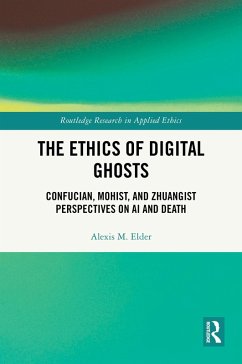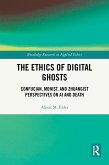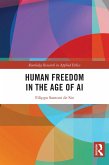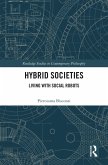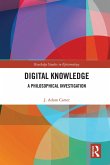Bereaved people have reported that conversations with digital ghosts can be surprisingly comforting and beneficial. However, there are concerns that they can be harmful, whether by preventing a hard but necessary acknowledgment of loss, producing ongoing dependence, or encouraging instrumentalization of our beloved dead. Building on some suggestive comparisons between digital remains and physical remains, this book uses resources from classical Chinese philosophy to connect concerns from funerary ethics to those presented by AI today. Confucianism, Mohism, and Zhuangism were remarkable for their rich, detailed discussions of the ethics of handling physical remains. This book updates and extends these concerns to apply to digital ghosts. It explores topics including the role of rituals and traditions in communal mourning, the epistemic consequences of fragmented standards for remembrance and data reuse, and the value of creative transformation and adaptation. The result is a psychologically plausible, culturally informed, and afterlife-neutral grounding for thinking about the ethics of digital ghosts.
The Ethics of Digital Ghosts will appeal to researchers and graduate students working in applied ethics, moral psychology, philosophy of technology, technology and AI ethics, cross-cultural philosophy, and classical Chinese philosophy.
Dieser Download kann aus rechtlichen Gründen nur mit Rechnungsadresse in A, B, BG, CY, CZ, D, DK, EW, E, FIN, F, GR, HR, H, IRL, I, LT, L, LR, M, NL, PL, P, R, S, SLO, SK ausgeliefert werden.
Kathryn Muyskens, National University of Singapore
"'Digital ghosts'-simulations of the speech and behavior of the deceased using generative AI-are a spooky and fascinating prospect that provokes all sorts of philosophical questions. Elder's book is the first major philosophical study of the phenomenon and covers many of its most provocative and troubling implications, as well as a few concerns you might not even have thought of. Strongly recommended."
Mark Silcox, University of Central Oklahoma, USA

